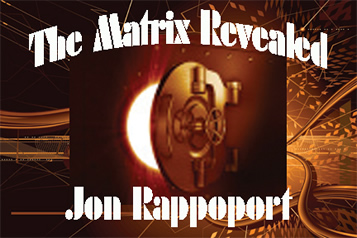by Jon Rappoport
April 20, 2011
(To join our email list, click here.)
Futurists are inclined to predict a world in which AI (artificial intelligence) will take over a major portion of what is now human activity.
In a matter of decades, for example, they say one computer will have more capacity than all the human brains on the planet put together.
Then, the prediction goes, AI will be virtually human, or more than human.
However, just because AI has greater computational skills than any person or group of persons, where is the quality that makes it human?
In order to answer that, you have to perform a little trick. You have to say that humans are really only high-class machines.
Many pundits have no difficulty with this, because they see humans as problem solvers, period. And that’s what a machine is.
It’s just like the genes-cause-everything hypothesis. Since all existence is assumed to take place on a material level, on a physical level, it’s only a matter of of time until we figure out which genes create which human qualities. Eventually, we’ll have a complete map.
Then, if we want to change humans, we just tinker with the genes.
It turns out that this style of reasoning can be used to justify external control of Earth’s population. The assumption is: we are already living in a closed system of cause and effect, so that system IS controlling all human behavior. Gene tinkering and handing over immense decision-power to advanced computers is nothing more than re-arranging the closed system. It was closed and it is closed and it will be closed. No problem.
Right now, the system appears to dictate wars and pain and suffering, so won’t it be much better when the gene-reconfiguration and the computers eliminate that aspect of things?
Believe me, many scientists are thinking along these lines, and they are serious about their goals.
They consider themselves humanitarians.
Another system-fix they have in mind? It involves adjusting the disparity between the haves and have-nots. It will require a central-planning point for production and distribution of all goods and services on the planet. For the good of everyone. It’s just a re-shuffling of pieces on the chess board.
And with gene-alteration and decision making by computers, such a central-planning program will supposedly be much easier to implement.
I bring all this up, because there is really only one way to defeat this kind of thinking.
YOU NEED TO ACKNOWLEDGE THAT A PRIME ASPECT OF EXISTENCE IS NON-MATERIAL.
Non-material means: without a rigid cause-and-effect structure.
To put it another and better way, the individual human being has freedom, and he also has imagination and creative power. These qualities are not material or physical in nature, they are not generated by the brain or by genes or by computational problem-solving ability.
In all societies, past and present, those people who agree that these non-physical capacities are quite real explain them by opting for religion, for religious stories, for cosmologies promoted by one kind of church or another.
Only a tiny number of people state that such non-material qualities and abilities are INHERENT in the human being and need no explanation or embroidery.
You could say the pendulum has swung drastically from one side to the other. First we had superstitions everywhere and no technology, and now we have streamlined science that purports to explain all of existence, but can’t.
Believe me, this inability to put all life under the umbrella of science is frustrating to obsessed rationalists. They refuse to allow the possibility that imagination and freedom are outside the boundaries of physical cause-and-effect…and if they have to, they will try to prove their position by imposing one system after another on humans, in order to wipe out the freedom they claim doesn’t exist in the first place.
One such strategy involves using computers to generate art and poetry. The thinking is, if we can’t tell the difference between what a computer and a human produce, why do we need human art—and more importantly, why do we need to claim that human imagination and creative power are unique? They are just sub-categories of computational skills, minor tricks, and we shouldn’t worry our pretty little heads about it…
In every technological society, power is thought of as physical, and the greatest power is produced by machines. To say that human power is ultimately a non-material capacity, and is equal to or greater than what a machine can do…this is considered the height of absurdity.
But if we surrender to that view, we deal away the future to systems that will put the squeeze on the essence of what a human is.
There are thousands, perhaps millions of artists all over the world who’ve glimpsed, or know deeply, what I’m talking about in this article. Their problem, if they have one, stems from believing they have to be psychological underdogs, in order to create their art. This is a cultural artifact, this belief, and it can be cast aside aside by nakedly comprehending the unlimited power of imagination they possess.
(To read about Jon’s mega-collection, The Matrix Revealed, click here.)
Jon Rappoport
The author of three explosive collections, THE MATRIX REVEALED, EXIT FROM THE MATRIX, and POWER OUTSIDE THE MATRIX, Jon was a candidate for a US Congressional seat in the 29th District of California. He maintains a consulting practice for private clients, the purpose of which is the expansion of personal creative power. Nominated for a Pulitzer Prize, he has worked as an investigative reporter for 30 years, writing articles on politics, medicine, and health for CBS Healthwatch, LA Weekly, Spin Magazine, Stern, and other newspapers and magazines in the US and Europe. Jon has delivered lectures and seminars on global politics, health, logic, and creative power to audiences around the world. You can sign up for his free NoMoreFakeNews emails here or his free OutsideTheRealityMachine emails here.
